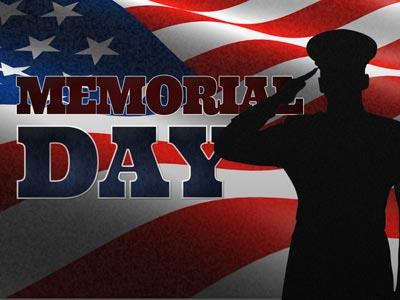-
Memorial Stones
Contributed by Doug Fannon on May 27, 2018 (message contributor)
Summary: Memorial Day Message: On Memorial Day we remember those who gave their lives for us, for our freedoms, for the values we hold today? Do we know what our freedoms are and the values on which our country is founded? Do we remember or did they die in vain
Memorial Day, the official start of the summer season. A day for family outings, a gathering of friends, BBQs and cookouts. It is also a day of remembering. We remember those who have gone before, especially those who have served in the military and died on foreign fields of battle. We need especially to remember what they had died for.
If we don’t remembering the freedoms and rights we have as a nation of people, those things that these who died in battle to preserve, if we do not remember those things,
then they died in vain. This sermon is titled Memorial Stones. It is in reference our focal passage to the stones the Israelites placed to remember the works of God.
We have memorial stones also. We have a cemetery full of them. We choose to remember. We choose to have a day where we look back on the past. We see where we have been so we can know where to go in the future.
A philosopher in the past century, George Santayana, was quoted to say: “Those who cannot remember the past are condemned to repeat it.” A lot of truth in that statement. What is that we remember and our question this morning, “are we faithful is passing on the memories?”
Joshua 4:1–9 (NKJV) And it came to pass, when all the people had completely crossed over the Jordan, that the LORD spoke to Joshua, saying: 2 “Take for yourselves twelve men from the people, one man from every tribe, 3 and command them, saying, ‘Take for yourselves twelve stones from here, out of the midst of the Jordan, from the place where the priests’ feet stood firm. You shall carry them over with you and leave them in the lodging place where you lodge tonight.’ ”
4 Then Joshua called the twelve men whom he had appointed from the children of Israel, one man from every tribe; 5 and Joshua said to them: “Cross over before the ark of the LORD your God into the midst of the Jordan, and each one of you take up a stone on his shoulder, according to the number of the tribes of the children of Israel, 6 that this may be a sign among you when your children ask in time to come, saying, ‘What do these stones mean to you?’ 7 Then you shall answer them that the waters of the Jordan were cut off before the ark of the covenant of the LORD; when it crossed over the Jordan, the waters of the Jordan were cut off. And these stones shall be for a memorial to the children of Israel forever.”
8 And the children of Israel did so, just as Joshua commanded, and took up twelve stones from the midst of the Jordan, as the LORD had spoken to Joshua, according to the number of the tribes of the children of Israel, and carried them over with them to the place where they lodged, and laid them down there. 9 Then Joshua set up twelve stones in the midst of the Jordan, in the place where the feet of the priests who bore the ark of the covenant stood; and they are there to this day.
As I think about these men and women who came before us and made it possible for us to enjoy the freedoms that we have, one thing stuck with me this week as I prepared this sermon. These people were simple people. While they did extraordinary things , there was nothing extraordinary about them. They were simple people just like you and me but driven by a love for God, Family and Country. Let me tell you about one of them.
Patrick Henry was a famous statesman and orator of colonial Virginia. In 1764 he was elected to the House of Burgesses where he became a champion of the frontier people, supporting their rights against the arrogant exercise of power by the aristocracy. In 1774 he was a delegate to the First Continental Congress. In 1775, before the Virginia Provincial Convention, which was deeply divided between those who supported England and those who desired freedom, he uttered his most famous words, "Give me liberty or give me death!"
During the Revolutionary War he became commander-in-chief of Virginia’s military forces, a member of the Second Continental Congress, helped draw up the first constitution of the Commonwealth of Virginia, and was largely responsible for drawing up the amendments to our Constitution known as the Bill of Rights. He became Virginia’s first governor, and was re-elected four times. Then he retired from public life, but despite his strong objections the people went ahead and re-elected him Governor for the 5th time. But he meant what he said, so he refused to take the office. He was offered a seat in the U.S. Senate, and posts as ambassador to Spain and to France. President George Washington asked him to join his cabinet and become Secretary of State, and later wanted to appoint him the Chief Justice of the Supreme Court. But he refused all such honors and recognitions.

 Sermon Central
Sermon Central



